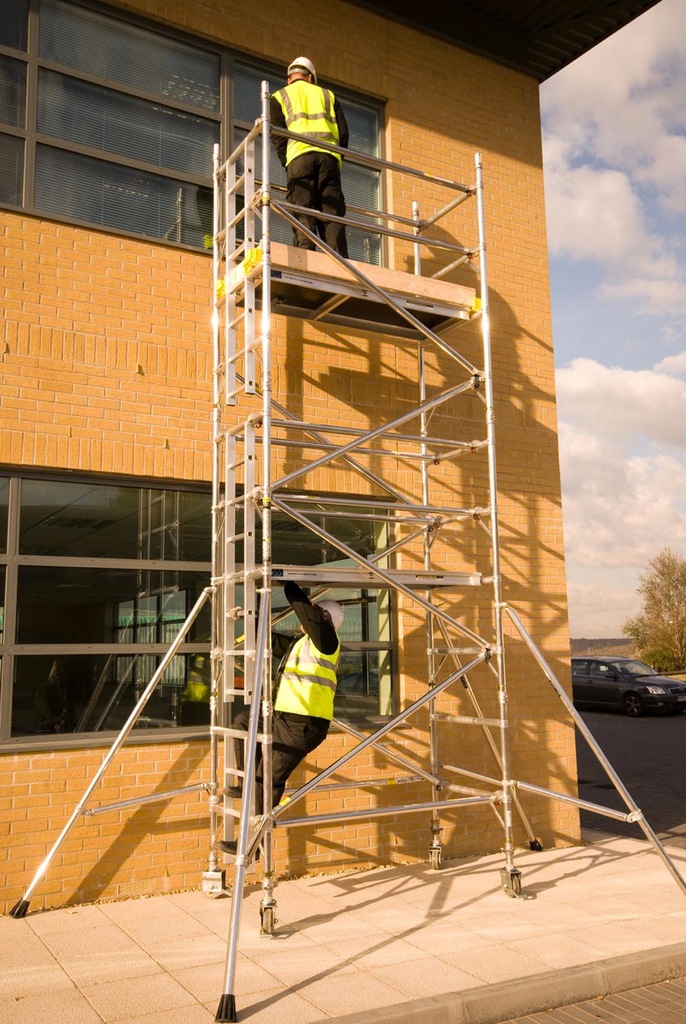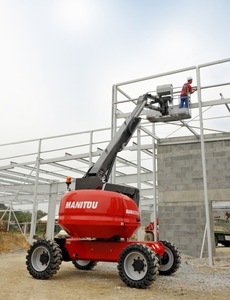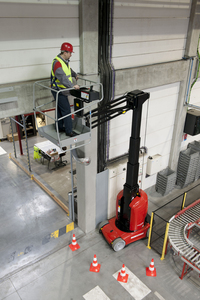
 |
Mark Sennett
Managing Editor |
 |
Kelly Rose
Editor |
| Home> | Training & Development | >Courses | >Access equipment training options |
Access equipment training options
29 June 2015
Richard Shore, managing director of Mentor Training Solutions (MTS), looks at the advantages of on-site training for your scaffold tower users and MEWP operators.

If it’s possible and practicable, wouldn’t it make more sense for employers to train their operators on the actual equipment they’re going to be using and in the place they’re going to be using it?
Years ago when the first requirements for formal fork truck training became established, operators tended to be trained in ‘training schools’ which were fine for teaching them the controls of the equipment and how to operate them but in many ways it was like being taught to drive a car in an empty car park. Sure, you will master the controls but, as we all know, that’s only a part of learning to drive a car.
What’s happened therefore in the fork lift world is that far fewer operators are trained in unfamiliar training centres, instead they’re taught on the actual equipment they’re going to be using and in their normal place of work. This trend can be easily applied to the access world, and the associated benefits can be a huge advantage to companies who need training on this type of equipment across all sectors.
The main benefits of on-site training are as follows:
- The training is more relevant and operators become more comfortable and competent quicker: working on-site, delegates should already be aware of any site-specific safety procedures, hazards and restrictions. Operating within these familiar surroundings should help to put them at ease during training
- The training covers not only the equipment but the place and application they’re going to be using it in: by utilising the regular working environment and equipment, training can be tailored to site-specific tasks and applications. Delegates will be taught the full operating requirements and limitations of their own machine and can practice operating relevant to their own procedures
- It saves time before, during and after training: the instructor travels to the delegates rather than the other way round, housekeeping can be kept to a minimum, and following training there is no need for a machine specific familiarisation, as delegates will have been using the company’s own equipment throughout
- It saves money: employers are not being asked to pay the high overheads of operating a training centre or any additional expenses for delegates, and employees are not taken away from work for any more time than is necessary, so any effect on productivity is kept to a minimum
Of course this approach isn’t for everyone. Delegates may be from companies that don’t have their own access equipment or there may not be a suitable area in which to train, in which case the training centre may be the most viable, or indeed only option. However, for many of the growing numbers of sites operating this type of equipment (scissor lifts, boom access trucks, mobile scaffolding etc.) there is a strong practical, safety and financial argument for doing it differently.

























